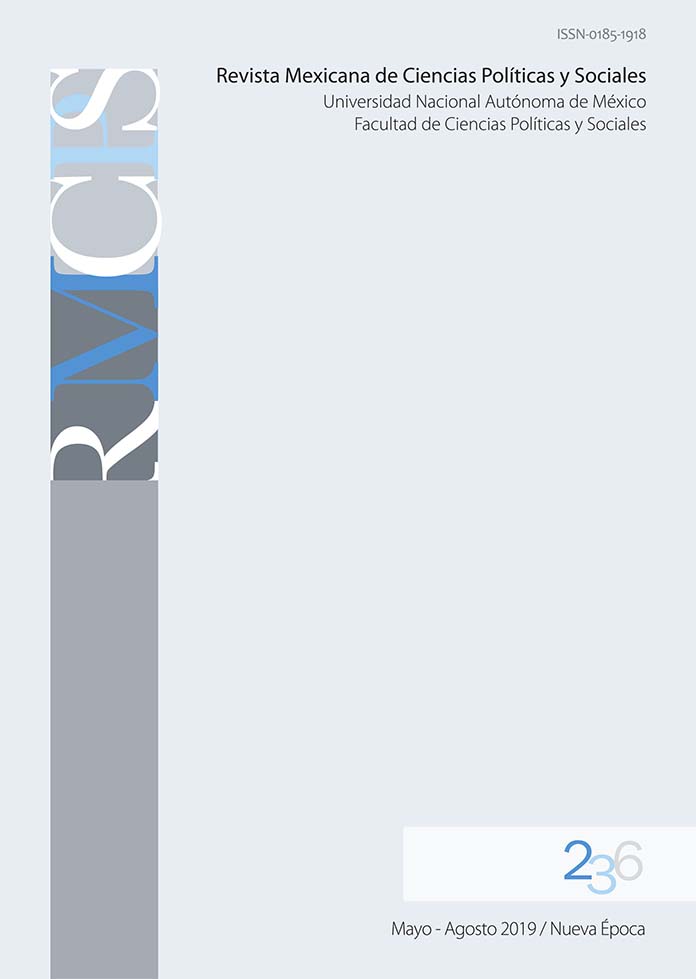Alain de Benoist. His Life and the Influence of the Conservative Revolution as Determinants of His Thought
Main Article Content
Abstract
Downloads
Article Details
Citas en Dimensions Service
References
Agulhon, Maurice (1976) “Les transformations du monde paysan” en Duby, Georges y Ar-mand Wallon (dirs.) Historie de la France Rurale, t. 3: Apogée et Crise de la Civilisation Paysanne, 1789-1914. París: Seuil.
De Benoist, Alain (1979) Vue de droite: Anthologie critique des idées contemporaines. París: Copernic.
De Benoist, Alain (1982) Die entscheidenden Jahre. Zur Erkennung des Hauptfeindes. Tubinga: Grabert.
Doumont, Louis (1982) Homo aequalis: Genèse et épanouissement de l’idéologie économique (2 tomos). Paris: Gallimard.
Fourastié, Jean (1979) Les Trente Glorieuses ou la Révolution invisible de 1946 à 1975. París: Fayard.
Freinet, Célestin (1979) Die moderne Französische Schule. Padeborn: Schöningh.
Moeller van den Bruck, Arthur (1931) Das Dritte Reich. Hamburgo: Hanseatische.
Nietzsche, Friedrich (1980) Kritische Studienausgabe (KSA) (Giorgio Colli y Mazzino Mon- tinari, eds.). Berlín / Nueva York: Walter de Gruiter.
Schmitt, Carl (1978) Die geistesgeschichtliche Lage des heutigen Parlamentarismus. Berlín: Duncker & Humblot.
Schmitt, Carl (1993) Verfassungslehre. Berlín: Duncker & Humblot.
Schmitt, Carl (2002) Der Begriff der Politischen. Berlín: Duncker & Humblot.
Schroeder, Winfried (2005) Moralisches Nihilismus. Radikale
Moralkritik von den Sophisten bis Nietzsche. Stuttgart: Reclam.
Spengler, Oswald (1933) Jahre der Entscheidung. Munich: Hofenberg.
VVAA (1977) “Le recensement de la population de 1975” Economie et statistique, (85): 61-63.

La Revista Mexicana de Ciencias Políticas y Sociales publicada por la Universidad Nacional Autónoma de México se distribuye bajo una Licencia Creative Commons Atribución-NoComercial-SinDerivar 4.0 Internacional.
Basada en una obra en http://www.revistas.unam.mx/index.php/rmcpys/
La RMCPyS autoriza a sus colaboradores que suban una copia de sus trabajos publicados en sus webs personales o en cualquier repositorio de acceso abierto, siempre y cuando se mencione específicamente a la Revista Mexicana de Ciencias Políticas y Sociales como fuente original de procedencia, citando el año y número del ejemplar respectivo y añadiendo el enlace a la página web donde este órgano editorial puede ser consultado in toto, de manera abierta y gratuita en: <www.revistas.unam.mx/index.php/rmcpys>.
Las y los lectores tienen libertad para:
Compartir, copiar y redistribuir el material en cualquier medio o formato.
El licenciante no puede revocar estas libertades en tanto usted siga los términos de la licencia.
De acuerdo con los siguientes términos:
- Atribución: la/el lector/a debe reconocer el crédito de una obra de manera adecuada, proporcionar un enlace a la licencia, e indicar si se han realizado cambios. Puede hacerlo en cualquier forma razonable, pero no de forma tal que sugiera que tiene el apoyo del licenciante o lo recibe por el uso que hace.
- No comercial: la/el lector/a no puede hacer uso del material con fines comerciales.
- Si se mezcla, transforma o se desarrolla a partir de la obra licenciada, no se permite la distribución del material modificado.
Cargos por gestión de artículos
La Revista Mexicana de Ciencias Políticas y Sociales NO cobra tarifas por recibir, procesar o publicar los artículos (Article Processing Charge [APC]) enviados por los autores.

